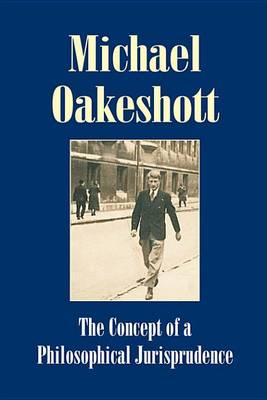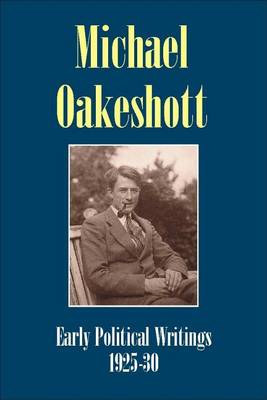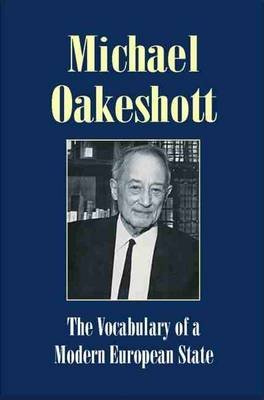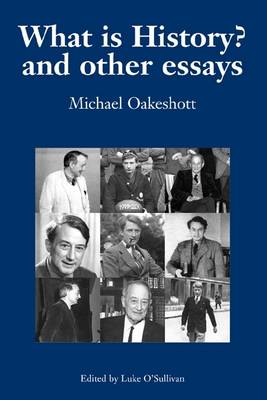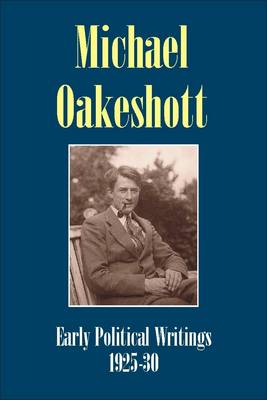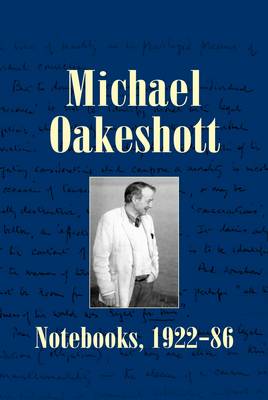Michael Oakeshott Selected Writings
4 primary works • 8 total works
Book 2
Book 2
Book 3
Book 5
The Vocabulary of a Modern European State is the companion volume to The Concept of a Philosophical Jurisprudence and completes the enterprise of gathering together Oakeshott's previously scattered essays and reviews. As with all the other volumes in the series it contains an entirely new editorial introduction explaining how the writings it contains find their place in his work as a whole. It covers the years 1952 to 1988, the period during which Oakeshott wrote his definitive work, On Human Conduct. The essay from which the volume takes its title was intended as a companion piece to the third part of the latter work, and is just one of over sixty pieces that it includes. The volume draws together critical responses to works by major philosophers, historians, and political theorists of his own generation such as Bertrand de Jouvenel, Herbert Marcuse, and Michael Polanyi as well as to some major figures of current scholarship such as Quentin Skinner and Roger Scruton.
This highly readable new collection of thirty pieces by Michael Oakeshott, almost all of which are previously unpublished, covers every decade of his intellectual career, and adds significantly to his contributions to the philosophy of historical understanding and political philosophy, as well as to the philosophy of education and aesthetics. The essays were intended mostly for lectures or seminars, and are consequently in an informal style that will be accessible to new readers as well as to those already well acquainted with Oakeshott's works. Early pieces include a long essay 'On the Relations of Philosophy, Poetry, and Reality', and Oakeshott's comments on 'The Cambridge School of Political Science' through which he himself had passed as an undergraduate. The collection also reproduces a substantial wartime essay 'On Peace with Germany'. There are two new essays on the philosophy of education, and the essay which gives the work its title, 'What is History?', is just one of over half a dozen discussions of the nature of historical knowledge. Oakeshott's later sceptical, 'hermeneutic', thought is also well represented by pieces such as 'What is Political Theory?' and 'The Emergence of the History of Thought.' Reviews of books by English and European contemporaries such as Butterfield, Hayek, Voegelin, and Arendt also help to place him in context more clearly than before. The book will be indispensable for all Oakeshott's readers, no matter which area of his thought concerns them most.
Michael Oakeshott (1901-90) made his reputation as a political philosopher, but for a long time it seemed as if he had little interest in politics before 1945. His major pre-war work, Experience and its Modes (1933) was an examination of the nature of philosophy and its relation to other forms of thought that made almost no mention of politics. However, it has become increasingly clear that this initial judgment was misleading. A posthumous collection of early essays, Religion, Politics, and the Moral Life (1993), proved that political philosophy was a lifelong concern. Nevertheless, the belief that Oakeshott was relatively uninterested in politics, at least in the 1920s, has persisted. This volume dispels that notion for good. It contains two previously unpublished works, a manuscript entitled 'A Discussion of some Matters preliminary to the Study of Political Philosophy', and the first version of a course of lectures on 'The Philosophical Approach to Politics' that Oakeshott gave between 1928 and 1930. These works establish that politics was a central concern in the first decade of his intellectual career, and show beyond any doubt that the ideas of Experience and its Modes actually grew out of Oakeshott's prior philosophical interest in politics.
From the 1920s to the 1980s Oakeshott filled dozens of notebooks with his private reflections, both personal and intellectual. Their contents range from aphorisms to miniature essays, forming a unique record of his intellectual trajectory over his entire career. This volume makes them accessible in print for the first time, drawing together a host of his previously inaccessible observations on politics, philosophy, art, education, and much else besides. Religion in particular emerges as an ongoing concern for him in a way that is not visible from his published works.
The notebooks also provide a unique source of insight into Oakeshott's musings on life, thanks to the hitherto unsuspected existence of the series of 'Belle Dame' notebooks that were written in the late 1920s and early 1930s but which only came to light two decades after his death. At the same period in which he was developing the concepts that would form Experience and its Modes, Oakeshott's personal life lead him to reflect extensively on love and death, themes that highlight his enduring romantic affinities.
Accompanied by an original editorial introduction, the volume allows readers to see for themselves exactly which works Oakeshott used in compiling each of his notebooks, providing a much clearer record of his intellectual influences than has previously been available. It will be an essential addition to the library of his works for all those interested in his ideas.

